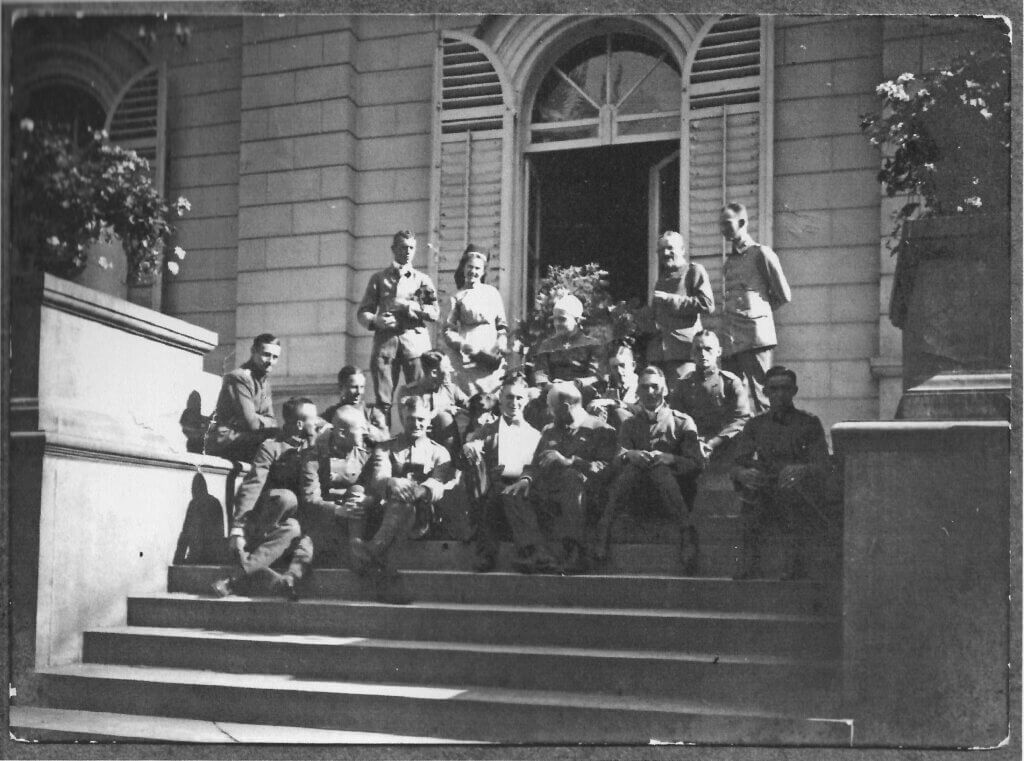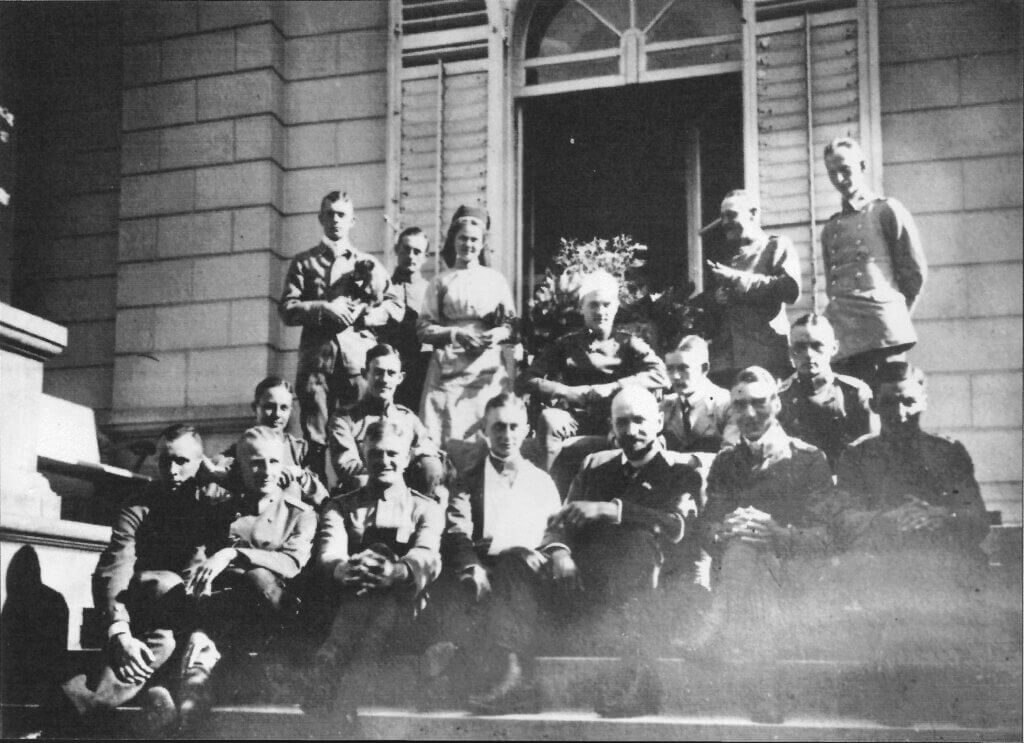MvR visits JG I
Event ID: 417
Categories:
22 July 1917
Source ID: 58
“These days, the cavalry captain’s patience is at an end. He doesn’t need to tantalise the ‘delicate little flower’ for long. The two have had enough. Last night, as every night, English planes visited the little town again and in the morning Baron von Richthofen was once again advised to finally go home to Germany, to Schweidnitz in Silesia. Firstly, it would be nice to be at home, and secondly, no enemy bombs had yet fallen in Schweidnitz and none were likely to fall in the foreseeable future and, moreover, it would be good for a maltreated head to get some rest.
This makes perfect sense to the cavalry captain. He looks at the doctors and nurses with his little smile. Of course, he says, a little change like this is definitely not to be despised. And he is determined. He wanted to visit his squadron in Marckebeeke.
And then the next day, right after lunch, the adjutant comes to pick them up. In the meantime, Richthofen’s father has arrived and a whole company is travelling to Marckebeeke. Her sister is also coming with them and she doesn’t care much that the cavalry captain is grimacing. Showing up at the air camp with a nurse is not at all to his taste. But he bites on granite. The nurse grimly declares that if the cavalry captain is going to get up to such mischief with his unhealed head, then she will be there.
The journey begins. The car drives slowly and carefully. They sit close together: Richthofen, Lieutenant Wolff, Major Richthofen, First Lieutenant Bodenschatz and the nurse. The whole journey takes only fifteen minutes, but in that quarter of an hour they are surrounded by marching troops and travelling columns. Some were coming out of battle and others were going in. The snow-white headdress of the cavalry captain shone from afar and the first infantrymen they saw stared curiously and wearily into the car. Then they suddenly raised their faces higher, discovered the Pour le mérite on the young Uhlan officer’s neck and looked more closely at his face.
‘Richthofen!!!’ suddenly roars the long columns. And a storm of gratitude roars through the infantry. Skinny hands are raised and waved, rifles are brandished, steel helmets are raised, the pale, exhausted faces tighten, the car is surrounded by officers and men.
The infantry know what this wounded young officer is worth to them. In the height of mortal distress, when they were cramped and defenceless in their wet holes in the ground and the hurricane of clods of earth and scraps of iron was howling over them, when they were eating their fury into themselves, when no rifle, no hand grenade, no pistol, no bravery could do them any good in the hellish artillery fire… then it had always been an infinitely comforting sight for her when the red machines became visible high above her, and when the enemy infantry planes began to waver nervously and take off, or when the artillery plane, which hung over them like an ugly wasp and let shot after shot hail down on them, suddenly roared home.
‘Richthofen!!!’ Up and down the companies chased this name, the drivers on the guns and wagons rose wildly from their seats, waving and shouting, it was an infinitely long trellis of love and respect through which the cavalry captain drove. He is relieved when the aerodrome finally appears. First Lieutenant von Doering reports in.
The commander shakes hands. He doesn’t actually say much, but his clear eyes say all the more. He sees the familiar faces and the simple rooms again, he looks at the often patched up and often shot through machines, walks around them for a long time and now he says almost fiercely: “You’re getting new Fokker triplanes, they climb like monkeys and are as manoeuvrable as devils”.
Then they sit down on the terrace, crown Richthofen’s chair with flowers, group themselves around him as picturesquely as possible and have their photos taken. Then they have coffee.
When he says goodbye again, he doesn’t say when he’ll finally be back. But he doesn’t need to say: they can all see that in his face. The way he looks and the way he has moved around the airfield and the little he has said… he will be back very soon.”



Comments (0)